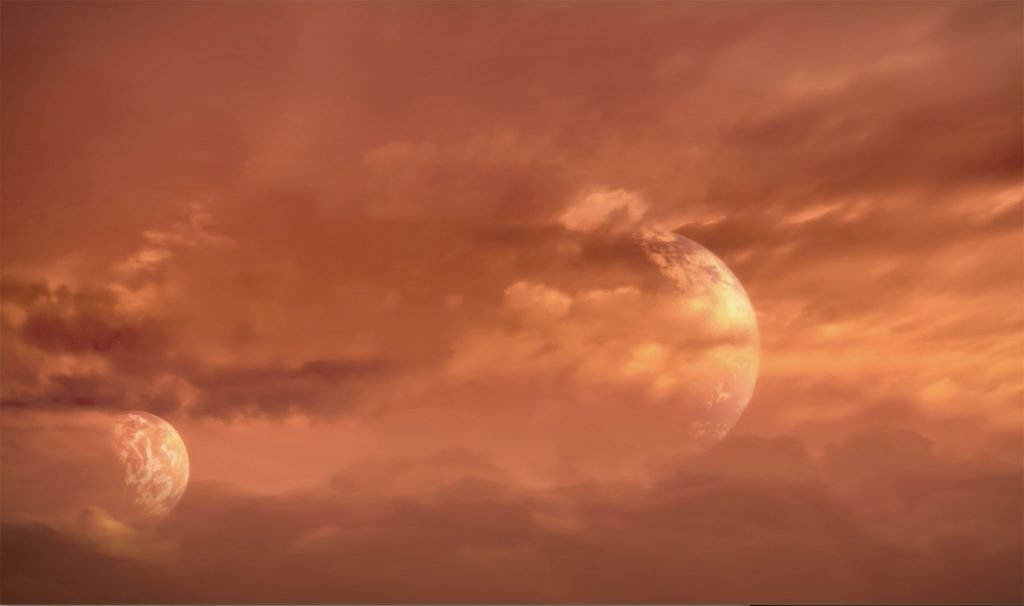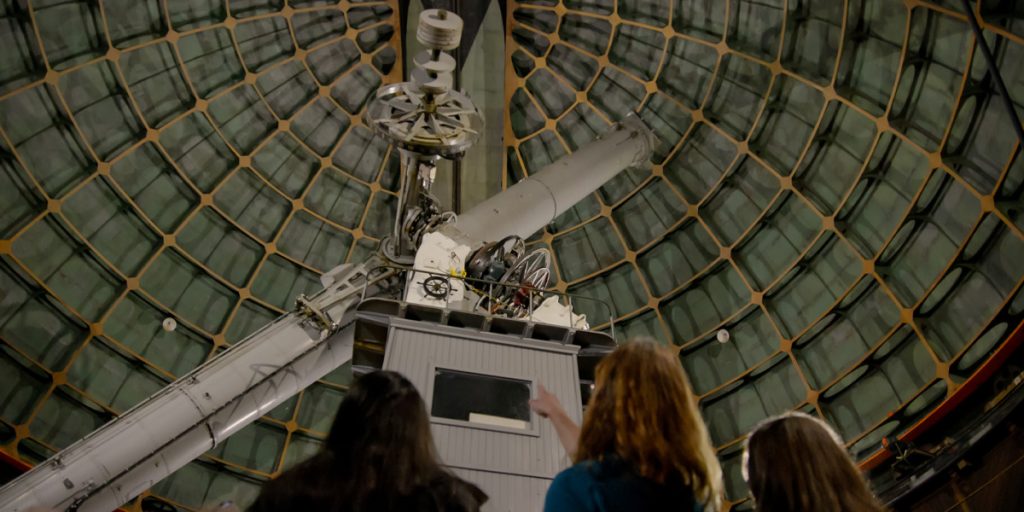The Hunt for Planet B brings to life the scientists responsible for building the new Space Telescope that stands to profoundly expand our knowledge of the stars.
Ostensibly, The Hunt for Planet B is about the construction of the James Webb Space Telescope, a telescope approximately one hundred times more powerful than the Hubble Telescope. However, in director Nathaniel Kahn’s telling, the story of one technological marvel’s constructions becomes something both more mythic and more intimate. It is both the story of humanity’s relationship with the cosmos and the struggle to define and understand our universe and the personal story of a handful of scientists who are dedicated to this construction. Critically, and in a savvy subversion of the For All Mankind-style filmmaking that has long defined the space race for the masses, the film is focused almost entirely on the female scientists responsible for this next era of space exploration. NASA heroism is here redefined to expand from mere test pilot fearlessness to incorporate intellectual curiosity and scientific know-how. It’s clear that this new era of space exploration will be defined less by square-jawed stoic heroism, but by whomever is the smartest person in the room.
The film has the sort of grandeur one would expect from a story about the stars. It orients you to the grand pursuit by visualizing what the planets surrounding the star Trappist-1 may look like, a series of potentially Earth-like planets we should be able to see with James Webb. Hued in a vivid red color scheme, reflecting the cooler color of that system’s sun, the film crafts a tactile sensation of how an alien world might appear. The effect is such that when we return to Earth, and the space telescope that should provide us with far more detail about the planets, that the mission feels important, vibrant, and futurist. The actual James Webb telescope is beautiful, adorned with shining gold and filmed in impressive low angles, such that it has the grandeur of something that feels like the sort of innovation could lead to a step forward in understanding of the universe. The film’s focus on the bleeding edge science on display is an effective way to orient the viewer to the film’s very big ideas.
The film is structured around the timeline of the telescope’s construction but allows itself to follow the threads that arise from the story. The inevitable question of the existence of life on other planets (which may, I should note, be answered by the James Webb Telescope) lead the film to a pivot to the SETI Institute which searches the sky for evidence of extraterrestrial life. Real life circumstances – the climate marches of 2019 – shifts the film’s focus inward towards the problems on Earth that need also be addressed as we look to the stars. There’s an enormous amount of material to digest here, but Kahn’s attention to grounded, personal stories ensures that it never feels overwhelming.

It’s clear that Nathaniel Kahn is a director drawn deeply to personal and humanistic storytelling. His best known work, My Architect, details his own struggle coming to grips with his father’s fame and absence. It’s a powerful, and sad, story of a son reckoning with legacy. It is thus unsurprising that this film comes alive in the very precise experiences and philosophies of the scientists he has chosen to follow.
Kahn is savvy in how he introduces us to each woman, and what role they tell in the story. One woman, a systems engineer by trade, is introduced digging into the motor of a car she and her husband have purchased in order to restore and race. Another, Jill Tarter, who served as the inspiration for the Jodie Foster character in Contact, breaks the fourth wall and explains to Kahn that what she thinks or believes is irrelevant – all that matters is what the science tells her. One more helps explain exoplanets with the help of a delightful little 50s-style travel poster depicting the trappiest system at her desk. These little details help flesh out the usual documentary “talking heads” as fully realized people and participants in what could be a significant leap in our understanding of the universe. That so many connections are made over what is a relatively brief amount of time with each scientist is a tribute to Kahn’s acumen at crafting an intimate, human-scale story even when the subject matter of his film is quite literally the universe.
The scientist I found most compelling is Sara Seager. Sara is perhaps the foremost expert in exoplanets on Earth, and comes across as just about the smartest person alive today. She is introduced as a beacon of professionalism and intellect in testimony before a Congressional subcommittee. Kahn slowly breaks down the veneer of this implacable scientific mind through her very particular story of love, loss, and human connection. She is a woman who has made remarkable achievements despite a tumultuous personal set of circumstances and, as depicted here, she is a character who will stay with me for a long time.
I’ll happily admit this sort of story is catnip for me. I grew up captivated by the Space Race and the promise of interstellar exploration. My daughter is named Astra, in part inspired by the Apollo Program’s motto and lasting memorial to the astronauts killed in Apollo 1: “ad astra per aspera” (to the stars through great tribulations). We wanted the name to inspire in her a sense that she can do whatever she wants with her life – that she should expect that “astronaut” or “scientist” are her options. I’m truly happy that when she’s older, I’ll have the chance to show her this film and its whole team of fascinating women that I hope she will see as inspirations.
My personal connection to the film aside, I think The Hunt for Planet B holds significant appeal as a story of our aspirations to understand the stars. The filmmaking skill on display is substantial, and the subjects fascinating. I anticipate The Hunt for Planet B will be considered one of the finest documentaries of 2021, a story that is both deeply human and immensely grandiose.
The Hunt for Planet B premiered at the South by Southwest Film Festival on March 18, 2021 and is now available to watch on digital and on demand. Read our interview with Nathaniel Khan on The Hunt for Planet B.

